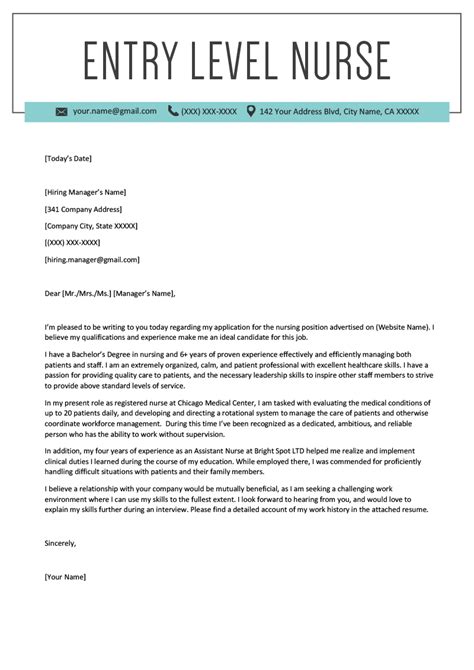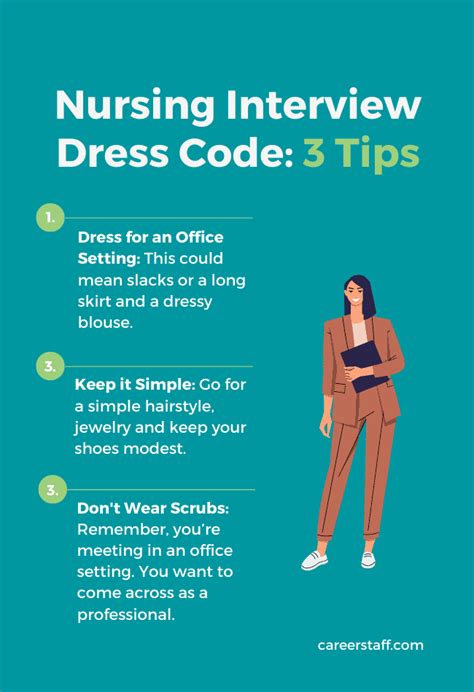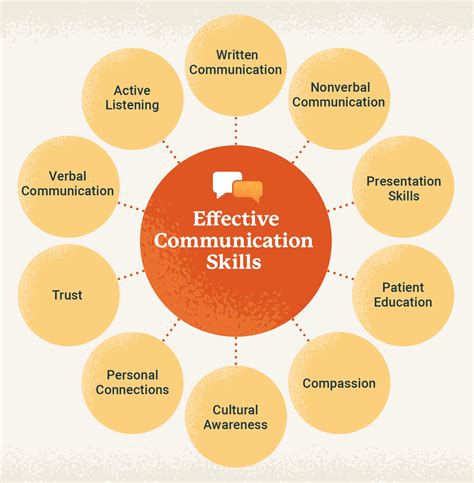Landing your dream nursing job goes beyond showcasing your qualifications and experience; it involves a holistic approach to interview preparation that communicates your passion, professionalism, and aptitude. Welcome to “Mastering Your Nursing Interview: Essential Preparation Tips for Success”, where we provide you with comprehensive strategies to approach your upcoming interview with confidence. From dissecting and acing common nursing interview questions to customizing your resume and cover letter – we’ve got you covered. We’ll also guide you on how to dress appropriately, ensuring you make that crucial first impression count. Moreover, effective communication skills are paramount in nursing, and mastering these will not only impress your interviewers but also pave the way for success in your nursing career. Join us as we delve into these crucial aspects to help you stand out in a competitive field and secure the position you’ve been aiming for.Ace your nursing interview with insights on answering common questions, customizing your resume, dressing right, and honing communication skills. Get hired now!
Common Nursing Interview Questions and How to Answer Them

When preparing for a nursing interview, it’s crucial to anticipate the types of questions you might be asked to ensure you demonstrate the best of your experience, skills, and personality. One typical inquiry might involve describing a challenging healthcare scenario and how you handled it. To answer this effectively, elaborate on a situation highlighting your problem-solving abilities, your capacity to stay calm under pressure, and your compassionate patient care. It is not just about recounting the event but emphasizing the outcome and what you learned from that experience.
Another pivotal aspect of Nursing Interview Preparation involves an understanding of the institution’s values and how your professional ethics align with them. For instance, if asked about how you embody a particular value in your work, take this opportunity to weave in your personal anecdotes with the facility’s ethos. Discuss specific instances in your nursing job interview where you went above and beyond for patient care, adhered strictly to protocols for safety, or collaborated effectively with colleagues, thereby showcasing a holistic view of your qualifications and character as a nursing professional.
Tailoring Your Resume and Cover Letter for a Nursing Position

When approaching the task of drafting your resume and cover letter for a nursing position, it’s vital to understand the level of specificity and personalization required to make a compelling case for yourself. Your resume is not just a list of your previous jobs; it’s a testament to your qualifications and dedication to the nursing profession. First, ensure that your resume clearly outlines your clinical experiences, relevant certifications, and any specialty areas of practice. Emphasize aspects such as your proficiency in patient care, your ability to work in high-pressure environments, and your understanding of medical terminologies and procedures. Align these qualifications with the job description to show that you have the exact skill set the employer is seeking.
Moreover, your cover letter presents an invaluable opportunity to convey your motivation and professional ethos to potential employers. It should be meticulously tailored to the specific nursing job interview ahead. Begin by addressing some pivotal questions: What drew you to this particular role or institution? How do your values align with their mission statement? Importantly, relate your personal nursing philosophy to how it benefits patient care and enhances interdisciplinary teamwork. When closing your cover letter, articulate a strong, personalized statement that reaffirms your eagerness to discuss your potential contributions to their team in further detail during the nursing interview. In sum, nursing interview preparation starts long before the actual interview—it begins with tailoring your professional documents to exhibit your passion for nursing and your readiness to excel in the role you apply for.
Dressing Appropriately for a Nursing Job Interview

When stepping into a nursing job interview, the first impression you make can be just as critical as your credentials and experience. The attire you choose to wear is a reflection of your professionalism and understanding of the nursing field’s norms. To demonstrate you take the position seriously, selecting an outfit that is clean, polished, and professional is essential. When preparing for a nursing interview, prioritize comfort and simplicity to ensure that your focus remains on the interview questions and interactions, not on any wardrobe distractions or discomforts.
Nursing interview preparation should include consideration of the institution’s culture and dress code – whether it’s a formal hospital setting, a casual clinic, or a specialized medical office. Typically, business casual attire is recommended for most nursing interviews. For men, this may entail wearing slacks with a dress shirt and tie, while women might opt for a conservative dress or a blouse paired with a skirt or slacks. Remember, the key to dressing appropriately for a nursing job interview is to convey competency and respect for the profession’s standards, allowing your qualifications and demeanor to take center stage.
Effective Communication Skills for Nursing Interviews

During the nursing interview process, exhibiting outstanding communication skills is paramount to success. Not only do these skills demonstrate your ability to interact with patients and colleagues, but they also highlight your competence in articulating your experience and nursing philosophy. To ensure that you convey the best possible impression, it is crucial to prepare responses that reflect your strengths and professional demeanor, allowing for a dialogue that is both informative and engaging. Adeptly handling the complexities of a conversation, including non-verbal cues, active listening, and clear articulation of thoughts, will set you apart as a candidate who is truly prepared for the demands of a nursing job interview.
In preparation for these dialogue-driven evaluations, prospective nurses should consider role-playing scenarios to refine their verbal and non-verbal communication skills. Crafting a narrative that weaves together your clinical experiences, ongoing education, and personal growth can make a compelling case for your candidacy. Such nursing interview preparation also involves understanding the nuances of professional etiquette—from the initial handshake to the closing statement of the interview. By practicing thoughtful responses that demonstrate both empathy and confidence, candidates can navigate the interview process with an authenticity that resonates with hiring panels, underscoring their readiness to excel in the dynamic field of nursing.
Frequently Asked Questions
What are some common nursing interview questions to prepare for?
Some common nursing interview questions include ‘Why did you choose nursing as a career?’, ‘How do you handle stress on the job?’, ‘Can you provide an example of how you’ve dealt with a difficult patient or family member?’, and ‘What are your greatest strengths and weaknesses as a nurse?’ It’s important to reflect on your experiences and prepare personalized answers that demonstrate your skills and compassion.
How important is it to research the healthcare facility before a nursing interview?
Researching the healthcare facility is crucial. It shows you’re genuinely interested in the position and allows you to tailor your responses to align with the facility’s values and culture. Knowledge about the facility can also help you to ask informed questions, which can impress your interviewers.
Can you give tips on how to effectively communicate one’s nursing experience during an interview?
When communicating your nursing experience, be specific about the skills you’ve acquired, the types of care environments you’ve worked in, and the patient demographics you’ve served. Use the STAR method (Situation, Task, Action, Result) to structure your responses to behavioral questions. This can help you clearly highlight how your experience is relevant to the position you are applying for.
Why is body language important in a nursing interview, and how can it be optimized?
Body language is important in a nursing interview as it can convey confidence, professionalism, and empathy — qualities essential for nursing roles. To optimize body language, maintain good eye contact, offer a firm handshake, sit up straight, and avoid fidgeting. These signals can positively impact the interviewer’s perception of you.
What role does self-reflection play in preparing for a nursing interview?
Self-reflection is integral in identifying your strengths, weaknesses, and professional values, which can help in answering questions authentically. Reflect on past experiences and challenges you’ve overcome, and consider how they have shaped you as a nurse. This self-awareness can enable you to present a truthful and compelling narrative to interviewers.
How can a nursing candidate handle tough questions about gaps in employment or changes in specialty?
Candidates should approach these questions with honesty and positivity. Instead of focusing on the gap, emphasize what you’ve learned during that time or how you’ve grown professionally. If changing specialties, explain your motivations for the change and how your previous experiences will enhance your performance in the new specialty.
Is there any specific advice for recent nursing graduates going for their first job interview?
For recent graduates, it’s helpful to focus on your clinical rotations, any volunteer work, and the knowledge you’ve gained through your education. Highlight soft skills like teamwork, adaptability, and a keenness to learn. Be prepared to discuss why you’re passionate about nursing and how you plan to contribute to the healthcare team.








